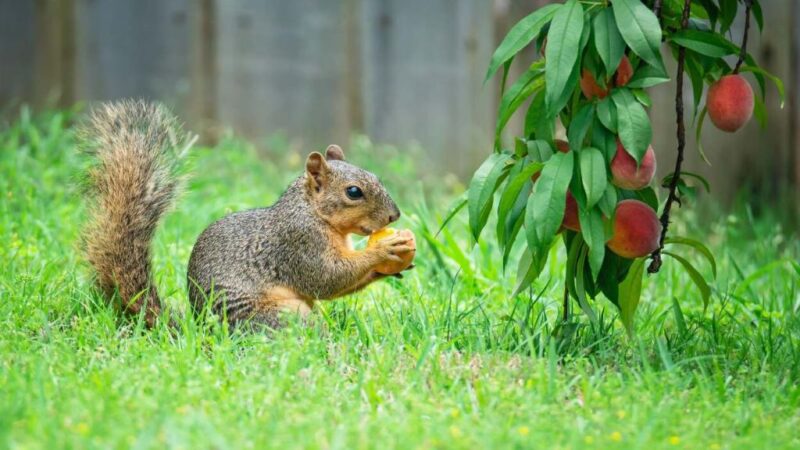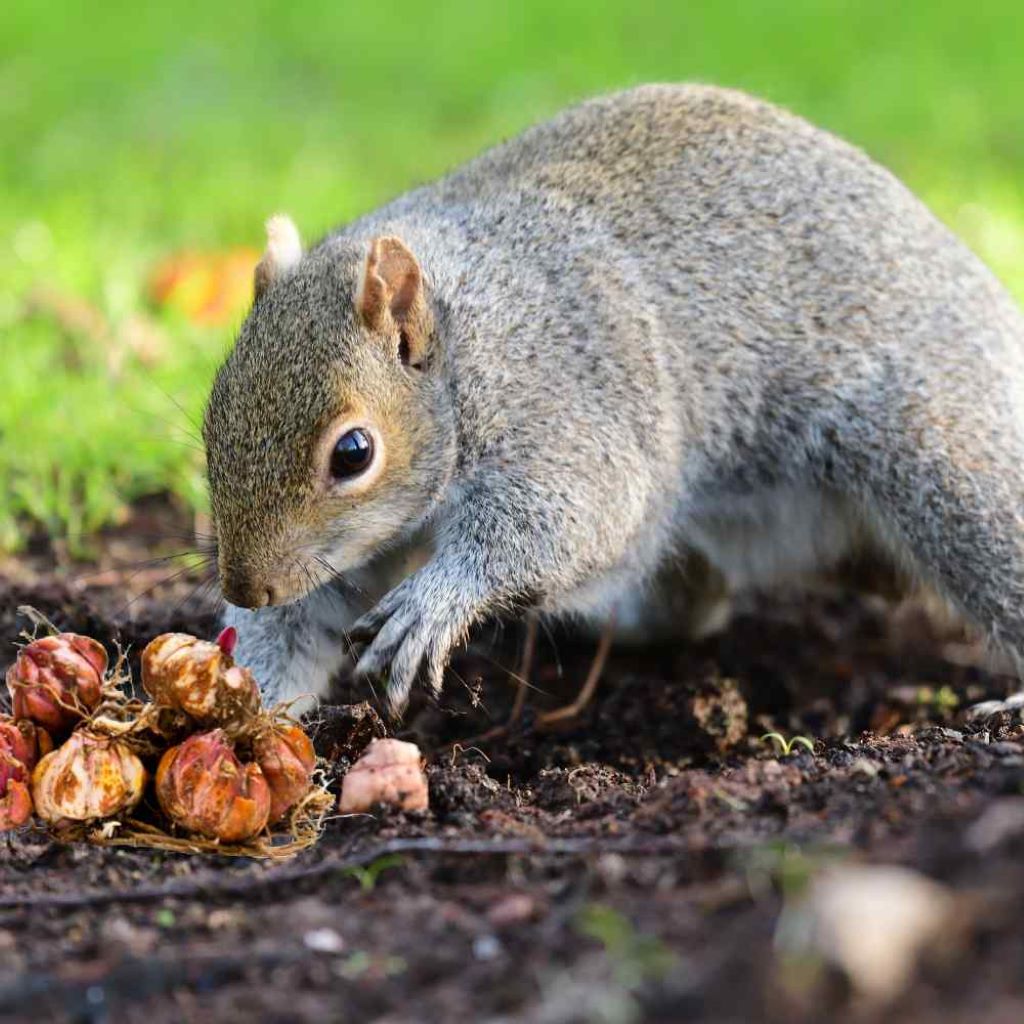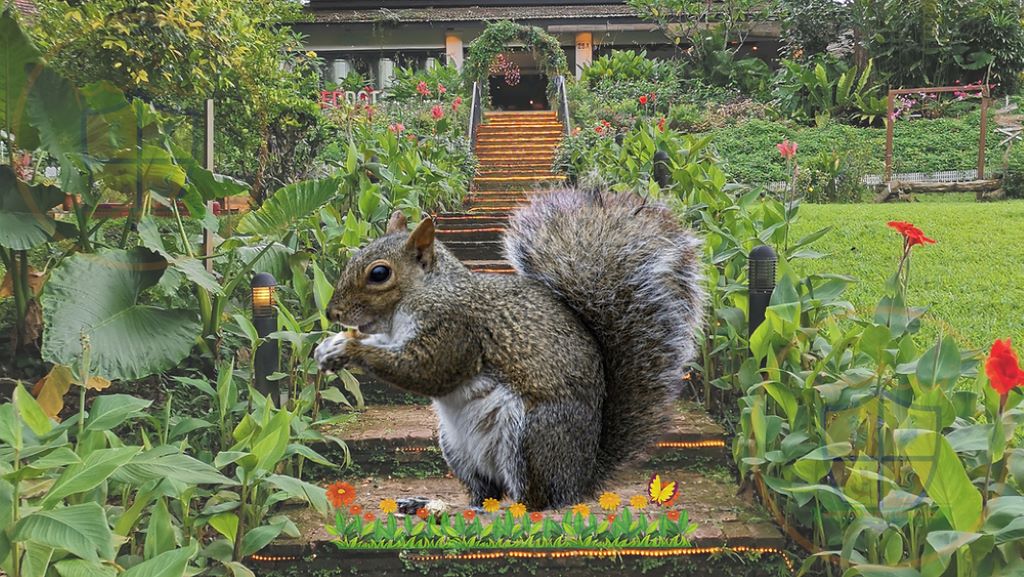To get rid of squirrels in your yard, remove any food sources and place squirrel repellents strategically. Now, here’s a detailed guide on how to effectively tackle the problem. The presence of squirrels in your yard can become a nuisance, causing damage to plants, digging up bulbs, and creating a mess with their constant gnawing and dropping of nuts and seeds. While they may be cute, it’s essential to prevent or remove them to maintain your garden’s health.
By following a few simple steps, you can effectively deter these critters from claiming your yard as their territory. This guide will provide you with a comprehensive approach to getting rid of squirrels and reclaiming your outdoor space, from removing their food sources to utilizing squirrel repellents. Whether it’s modifying the landscape to make it less attractive to squirrels or applying specific deterrents, these strategies are designed to address the problem effectively. For an even more detailed approach and additional tips on wildlife control, Themadething.com offers a wealth of information that can be particularly helpful in managing such situations.
Identifying Squirrel Activity
To identify squirrel activity in your yard, look out for chewed wires, birdseed theft, and gnawed wood. Keep an eye on the trees for nests and observe for erratic behavior. Squirrels are active during the day, so spotting them can help in deciding how to get rid of them.
Recognizing Signs Of Squirrel Presence
If you’ve noticed some unusual activities in your yard, it could be a sign that squirrels have made themselves at home. These small and agile creatures are notorious for their knack of rummaging through yards and causing havoc. By recognizing the signs of squirrel presence, you can take the necessary steps to rid your yard of these furry intruders.
| Signs of Squirrel Presence | Description |
| Nests | If you spot large, rounded structures made of leaves and twigs, these could be squirrel nests. Look for them in trees, attics, or any secluded area of your yard. |
| Holes | Squirrels love to dig holes in search of food or to store their stash. Keep an eye out for small holes, about two inches in diameter, scattered across your yard. |
| Chewed Objects | Squirrels tend to chew on just about anything, including wires, outdoor furniture, and even bird feeders. If you notice objects with teeth marks or signs of gnawing, it’s likely squirrels are to blame. |
| Feeding Stations | Squirrels are opportunistic eaters and are drawn to bird feeders and food sources left out by humans. If you frequently spot squirrels near your bird feeder or around areas with exposed food, it’s a clear indicator of their presence. |
Assessing Potential Damage
Identifying squirrel activity is only the first step in dealing with these yard invaders. Assessing the potential damage caused by squirrels is essential in determining the appropriate measures to take. It’s important to take into account any vegetation or structures that may be at risk.
Squirrels are known to have a destructive side, and there are several ways they can cause damage in your yard:
- Gardens and Landscaping: Squirrels can dig up and destroy your carefully planted bulbs and vegetation. Keep an eye out for disturbed soil or missing plants.
- Eaves, Gutters, and Roofing: Squirrels may try to gain access to your home by gnawing on or entering through these areas. Inspect them for any signs of damage or holes.
- Bird Feeders and Food Storage: As mentioned earlier, squirrels have a knack for raiding bird feeders and food storage areas. They can damage feeders or cause spillage, attracting other pests.
By assessing the potential damage, you can prioritize the areas that require immediate attention and implement effective squirrel control strategies accordingly. Don’t let these cute critters compromise the beauty and functionality of your yard!
Natural Squirrel Repellents
Squirrels can be adorable creatures, but when they invade your yard, they can wreak all sorts of havoc. If you’re looking for natural ways to get rid of squirrels, then you’re in the right place. In this article, we’ll explore some effective methods that can help keep those troublesome squirrels at bay. One common question that arises in this context is, do squirrels eat bread? While squirrels may occasionally eat bread, it’s not a preferred food and doesn’t directly relate to natural repellent strategies. We’ll focus on using natural squirrel repellents, which are not only effective but also eco-friendly. Let’s dive in and learn more about implementing odor-based repellents and using predator scents to deter squirrels from your yard.
Implementing Odor-based Repellents
To repel squirrels, you can take advantage of the strong sense of smell they possess. By using certain odor-based repellents, you can create an environment that squirrels will find detestable, causing them to avoid your yard altogether. Here are a few natural odor-based repellents you can try:
- Peppermint Oil: Squirrels dislike the strong scent of peppermint oil. Mix a few drops of peppermint oil with water in a spray bottle and spray it around your yard, paying special attention to areas where squirrels frequent.
- Chili Pepper: Squirrels are not fond of spicy scents. Sprinkle some chili pepper powder around your garden beds or areas where squirrels tend to dig. Just be sure to reapply after rain or watering.
- Garlic: The pungent odor of garlic can work wonders in repelling squirrels. Crush a few garlic cloves and scatter them around your yard or plant them near your flower beds to safeguard your greens.
Using Predator Scents
Squirrels are naturally wary of predators, and using predator scents is an effective way to keep them away from your yard. Here are a few predator scents that can help:
- Coyote Urine: Squirrels consider coyotes to be a threat, and the scent of coyote urine can make them feel unsafe. You can find coyote urine or predator scent repellents online or in garden supply stores. Follow the instructions provided to apply them strategically in your yard.
- Fox Urine: Similar to coyote urine, squirrels perceive the scent of fox urine as a predator’s presence. Applying fox urine or predator scent repellents around your yard can discourage squirrels from venturing too close.
- Owl Feathers: Owls are natural squirrel predators, and the sight of their feathers can make squirrels think twice about entering your yard. Scatter owl feathers strategically around your garden to create the illusion of a predator’s presence.
By implementing odor-based repellents and using predator scents, you can effectively deter squirrels from invading your yard. Give these natural methods a try and enjoy a squirrel-free outdoor space.
Physical Deterrents
If you find that squirrels are wreaking havoc in your yard, physical deterrents can be an effective way to discourage their presence. Focusing on barriers and devices that deter squirrels physically can help keep them at bay and protect your garden or outdoor space.
Installing Squirrel-proof Barriers
One effective method to keep squirrels out of your yard is by installing squirrel-proof barriers. These barriers can include fences, netting, or wire mesh that are specifically designed to prevent squirrels from accessing your yard or garden. The barriers should be tall enough and sturdy enough to keep squirrels from climbing over or digging under them.
Utilizing Motion-activated Devices
Motion-activated devices are another physical deterrent that can effectively ward off squirrels. These devices emit a sudden burst of sound, light, or water when they detect movement, startling the squirrels and encouraging them to stay away from your yard. Placing these devices strategically around your yard can provide comprehensive coverage and deter squirrels from entering.
Trapping And Removing Squirrels
If you’re dealing with pesky squirrels wreaking havoc in your yard, trapping and removing them can be an effective solution. Using the right traps and releasing them humanely is crucial to resolving the issue. In this section, we’ll guide you through selecting the appropriate traps and ensuring the safe release of captured squirrels.
Selecting The Right Traps
When it comes to trapping squirrels, it’s important to choose the right type of trap to increase your chances of success. Here are a few options:
| Type of Trap | Description |
| Live Cage Trap | These traps are designed to capture the squirrel alive. They typically have a door or opening mechanism that triggers when the squirrel enters the trap. |
| Foot Hold Trap | These traps are more traditional and are meant to hold the squirrel by the foot. They can be effective but require careful positioning to avoid harming the animal. |
| Squirrel Snare | A snare is a thin wire loop that tightens around the squirrel’s neck or body when it tries to pass through it. These traps should be used cautiously to prevent injury to the squirrel. |
Consider factors like the size of squirrels in your area, the level of infestation, and the effectiveness of each trap type before making your decision. Additionally, be sure to check any local regulations or guidelines regarding trapping squirrels.
Humanely Releasing Captured Squirrels
Once you’ve successfully trapped a squirrel, it’s crucial to release it safely and responsibly. Follow these steps for humane release:
- Choose an Appropriate Location: Find an area away from your property where the squirrel can thrive without causing further problems.
- Ensure Adequate Shelter: Release the squirrel near a suitable habitat, such as a wooded area with trees for nesting and natural food sources.
- Open the Trap: Slowly and carefully open the trap door or mechanism, allowing the squirrel to exit at its own pace.
- Observe from a Distance: Once released, maintain a safe distance and avoid interfering with the squirrel’s behavior or instincts.
By selecting the right traps and releasing squirrels humanely, you can effectively manage their presence in your yard while respecting their place in the ecosystem.
Preventive Measures
Squirrels can be quite a nuisance when they invade your yard, damaging plants, digging holes, and raiding bird feeders. To avoid these unwanted guests, it’s important to take preventive measures to discourage squirrels from making your yard their playground. By securing food sources and maintaining your landscape in a way that discourages nesting, you can effectively keep squirrels at bay.
Securing Food Sources
To prevent squirrels from finding food in your yard, it’s crucial to secure any potential food sources. Whether it’s bird feeders or freshly grown fruits and vegetables, taking these measures will deter them from rummaging through your yard:
- Use squirrel-proof bird feeders or place them in locations that are difficult for squirrels to access.
- Avoid leaving uncovered food outdoors, such as pet food or fallen fruits.
- Consider applying a squirrel repellent around your garden to discourage them from munching on your plants.
Maintaining Landscape To Discourage Nesting
Squirrels are notorious for making nests in trees and other cozy spots in your yard. By maintaining your landscape in a way that discourages nesting, you can significantly reduce the squirrel population in your yard:
- Trim tree branches that are close to your house, as squirrels can use them as a bridge to access your roof.
- Keep your lawn tidy by regularly removing fallen leaves and debris, as squirrels are less likely to nest in clean areas.
- Consider installing a squirrel guard around tree trunks to prevent them from climbing and nesting.
- Use mesh or wire fencing to cover any openings or gaps that could serve as entry points for squirrels.
Implementing these preventive measures will help you create a yard that is less inviting to squirrels, reducing the chances of them becoming a nuisance. By securing food sources and maintaining your landscape to discourage nesting, you can enjoy your yard without the hassle of dealing with squirrels.
Frequently Asked Questions On How To Get Rid Of Squirrels In Yard
How Can I Get Rid Of Squirrels In My Yard?
To get rid of squirrels in your yard, you can try using squirrel repellents, securing garbage bins, trimming tree branches, and using squirrel-proof bird feeders. Additionally, you can also consider using humane squirrel traps or seek professional help if the problem persists.
Are Squirrels Harmful To My Yard?
Squirrels can cause damage to your yard by digging up bulbs, foraging in gardens, and chewing on plants. They can also create holes in lawns, damage bird feeders, and cause electrical issues by chewing on wires. Taking preventive measures to control their population can help protect your yard.
How Do I Prevent Squirrels From Damaging My Property?
To prevent squirrels from damaging your property, make sure to seal any potential entry points, such as cracks in the foundation and gaps in the attic. Trim tree branches away from the roof and use squirrel-proof bird feeders. Removing any potential food sources and using squirrel repellents can also be effective.
Conclusion
In your quest to rid squirrels from your yard, it’s important to employ a multifaceted approach. To tackle the issue of sticker burrs, which can be as persistent and annoying as squirrels in your yard, employing a combination of deterrents, sealing entry points, and maintaining a clean yard proves to be an effective strategy. Just as these methods make your property less inviting to pesky critters, they can also help in controlling the spread of sticker burrs, ensuring your outdoor space remains enjoyable and free from nuisances. Consider using multiple approaches for the best results in both squirrel and sticker burr control.



